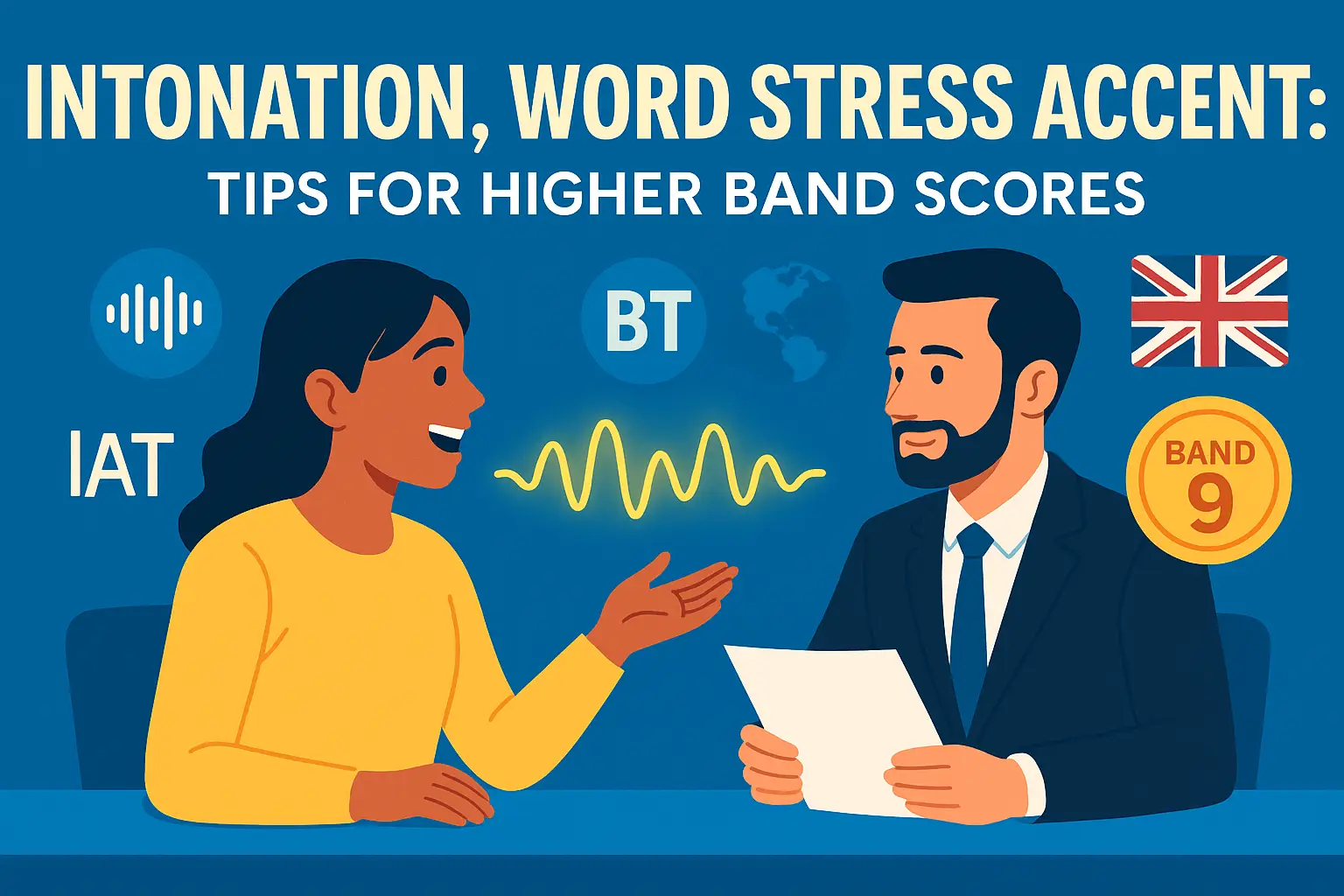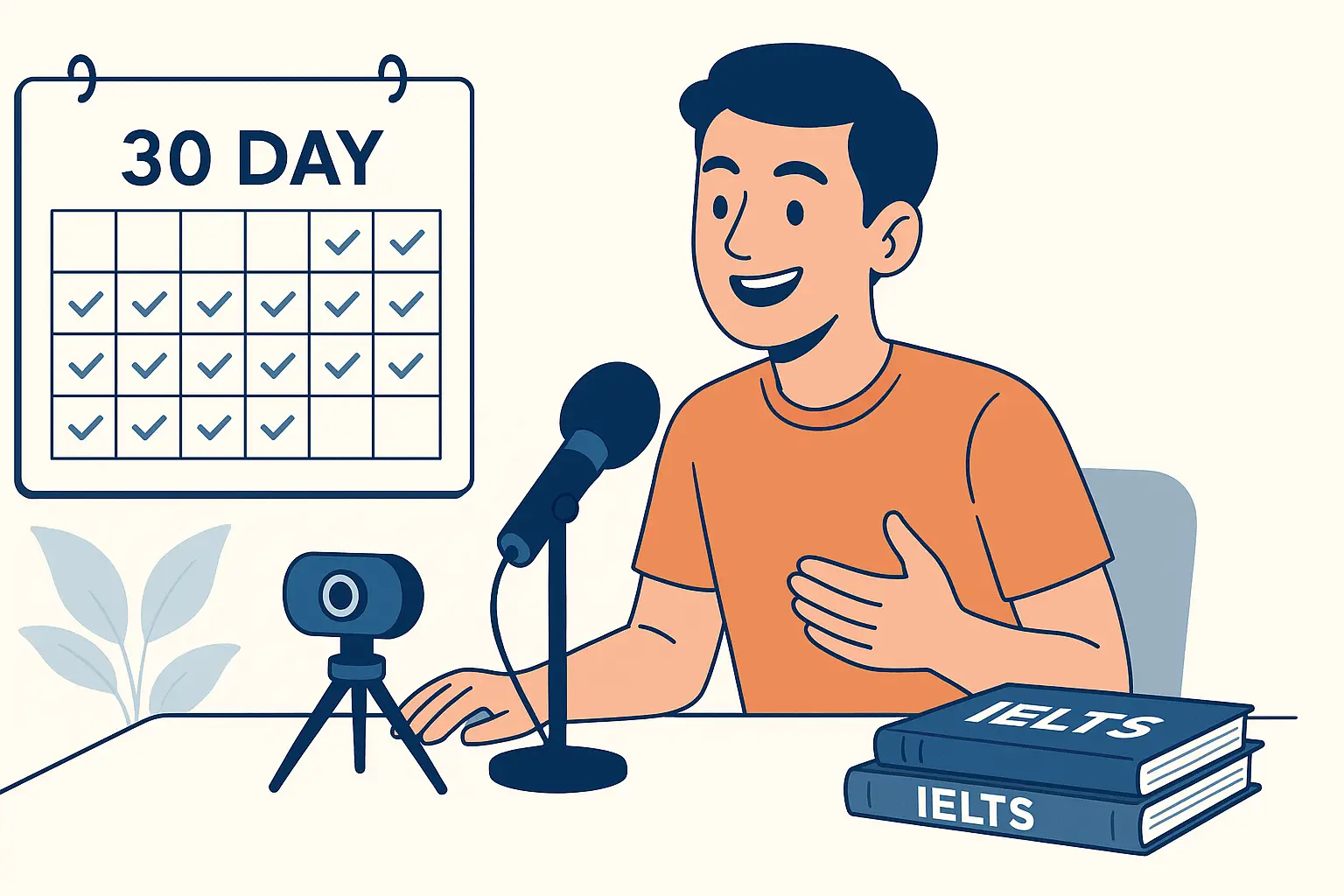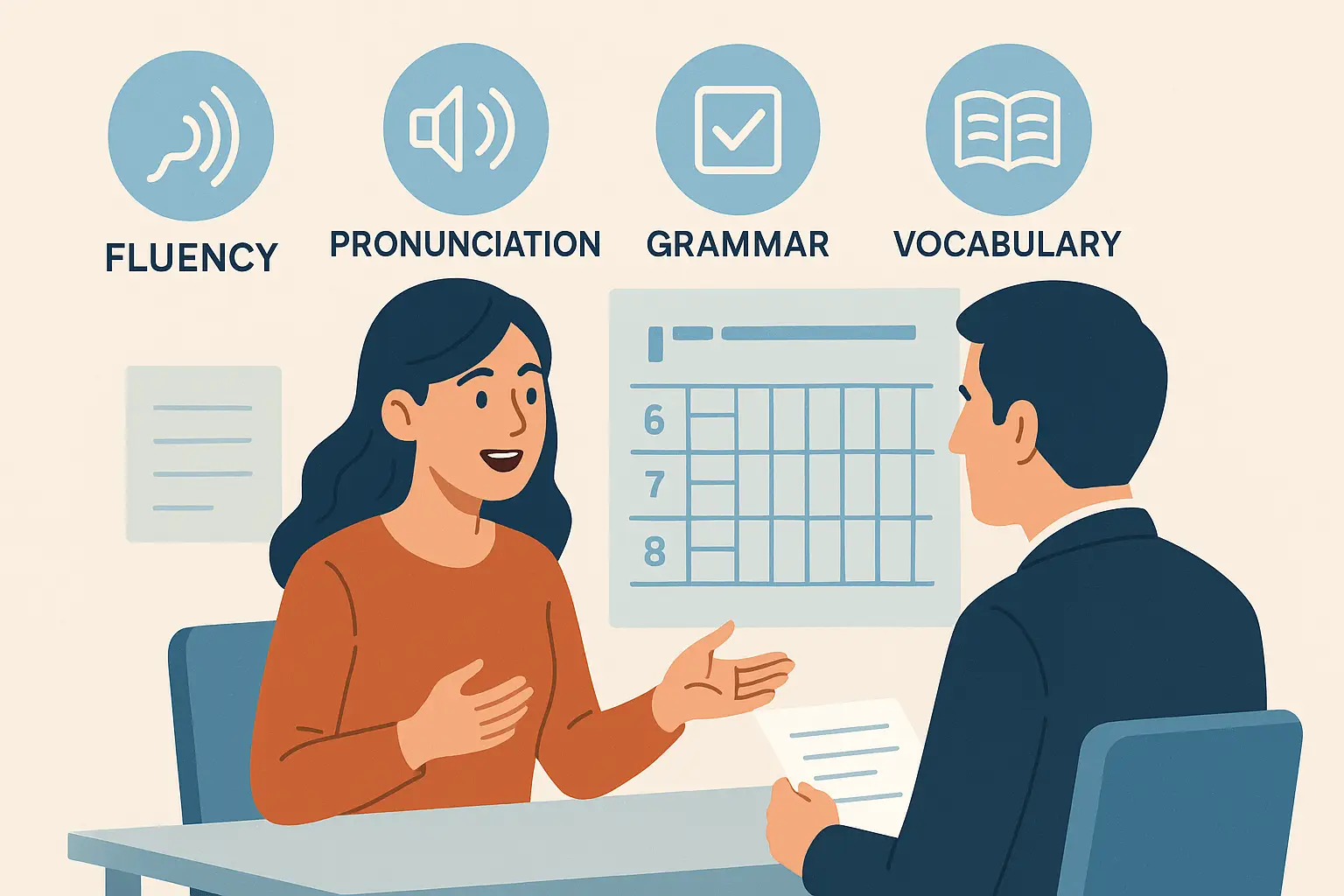As an international IELTS teacher working with students from over 30 countries, I’ve seen firsthand how intonation, word stress, and accent can dramatically impact IELTS Speaking band scores. These three elements often go unnoticed by students, but they’re absolutely vital for achieving Band 7, 8, or even 9. In fact, one of the most common things I hear during mock tests is, “But I gave the right answer!”—yes, you did, but how you sounded delivering it made all the difference.
Whether you’re aiming to impress examiners from IELTS IDP or British Council, or simply want to sound more fluent and natural, this post is for you.
Why This Matters More Than You Think
One of my students from Vietnam, Minh, had excellent vocabulary and grammar—but he kept scoring Band 6.5. The problem? His speech was flat. No rise or fall in tone. No stress on important words. As soon as we worked on his intonation, word stress, and accent, his score jumped to a Band 8 within 3 weeks.
Many learners think improving vocabulary is the only way to boost their scores. But remember, fluency and pronunciation—two of the four IELTS Speaking criteria—are all about how you say things, not just what you say.
✅ Read the full IELTS Speaking Complete Guide to understand how each band score is assessed.
What Are Intonation, Word Stress, and Accent?
Intonation
Intonation is the musical pitch or tone of your voice when speaking. It helps convey meaning, emotion, and clarity. In English, rising intonation often indicates a question, while falling intonation shows certainty or completeness.
Example:
“You’re coming today?” ↗️ (rising intonation – question)
“You’re coming today.” ↘️ (falling intonation – statement)
Word Stress
English is a stress-timed language. This means certain syllables are naturally emphasized more than others. Misplacing stress can confuse your listener or even change the word completely.
Example:
PREsent(noun) vs.preSENT(verb)
I’ve had students from Brazil and Bangladesh both struggle with this. Once we practiced with rhythmic drills and sentence stress exercises, they not only spoke more clearly but also gained confidence.
Accent
Let me be clear: you don’t need a British or American accent to get a high score. But your accent must not interfere with understanding. The key is clarity, not sounding “native.”
I remember a student from Turkey who had a strong regional accent. We didn’t try to erase it—we simply cleaned up unclear consonant sounds, practiced vowel precision, and worked on connected speech.
How to Practise Intonation, Word Stress, and Accent
Here’s what I’ve done with students over the years to help them master these three elements:
1. Mimic Native Speech with Shadowing
Choose a short clip from IELTS.org or YouTube (Band 9 Speaking samples) and shadow the speaker—repeat as they speak, not after. Match their rise, fall, pauses, and pace.
Record and Analyse Yourself
Record your answers to common IELTS Speaking questions. Then compare your version with a Band 9 model. Tools like Audacity or apps like ELSA Speak can highlight where your stress and intonation fall flat.
3. Use Sentence Stress Practice
Take a sentence like:
“I didn’t say he stole the money.”
Now stress each word one by one and notice how the meaning changes. This shows how important emphasis can be in conveying intent.
4. Work on Accent Neutrality, Not Perfection
Instead of trying to sound British, aim for neutral, global English. Focus on clear consonants (like ‘r’ and ‘th’ sounds), vowels (like /ɪ/ vs /iː/), and reduce mother-tongue interference.
You can explore more techniques in my detailed guide on Grammar, Pronunciation & Fluency for IELTS Speaking.
5. Train Your Ears as Much as Your Mouth
Listening to authentic English will teach your brain to expect certain sounds, stress patterns, and intonation shifts. Podcasts, news clips, and IELTS Listening samples are all useful here.
The Result? Natural, Confident, Examiner-Friendly Speech
When students combine good grammar with solid delivery, everything changes. You sound more persuasive, less robotic, and far more fluent. I’ve seen dozens of learners move from Band 6.5 to Band 8 just by refining these three elements.
Don’t underestimate the power of intonation, word stress, and accent. The examiner hears hundreds of voices every month—make yours the one they remember for clarity and natural flow.
FAQs on Intonation, Word Stress, and Accent for IELTS
Can I get Band 9 with a non-native accent?
Yes, absolutely. As long as your accent is clear and easy to understand, you won’t lose marks. Focus on clarity over imitation.
Is it okay to pause while speaking if I’m nervous?
Yes, natural pauses are fine, but fillers like “um” or “uh” can hurt fluency. Controlled intonation helps you pause with confidence.
How do I know if I’m stressing the right word?
Use transcripts of model answers and underline the stressed words. Practice aloud and record yourself for feedback.
Which is more important—grammar or pronunciation?
Both matter equally. Grammar ensures correct content; pronunciation (intonation, word stress, and accent) ensures clear delivery.
Where can I find real IELTS Speaking samples?
You can find authentic examples on IELTS.org, IDP IELTS, or the British Council’s official website.
Ready to improve your pronunciation and fluency for a higher IELTS Speaking band score? Start today, and speak your way to success.




